Analysis
Meet Joshua Beckford, The 6-Year-Old Nigerian With Autism Who Became The Youngest Person To Attend Oxford University

Joshua Beckford’s story is a remarkable testament to the boundless potential of the human mind, even in the face of challenges. Born with autism, Joshua has defied conventional expectations and has been recognized as one of the smartest individuals in the world.
At just six years old, Joshua became the youngest person to attend Oxford University, breaking records and challenging traditional notions of academic excellence. His journey to academic excellence began at an astonishingly young age, setting a new standard for brilliance and determination.
Joshua’s prodigious talents were evident from infancy. His father, Knox Daniel, noticed Joshua’s exceptional abilities when he was just ten months old. Sitting on his father’s lap while using a computer, Joshua could already recognize and remember the letters on the keyboard. By the age of two, Joshua could read fluently using phonics, and by three, he was speaking Japanese.
In 2011, Joshua’s father sought to challenge his son’s intellect further. Knox Daniel contacted the University of Oxford to see if Joshua could enroll in a philosophy course designed for children aged eight to thirteen. Remarkably, the university accepted Joshua, making him the youngest person ever to study at Oxford. He excelled in his studies, earning distinctions in both Philosophy and History.
Joshua’s academic prowess extends beyond philosophy and history, demonstrating exceptional abilities in science, mathematics, foreign languages, and history. He aspires to become a neurosurgeon, a goal he actively pursues by practicing medical procedures like gall bladder removals and appendectomies through simulations.
In addition to his academic endeavors, Joshua is writing a children’s book about ancient Egypt, reflecting his broad range of interests and talents. He is also deeply committed to advocating for autism awareness and support, serving as the face of the National Autistic Society’s Black and Minority Ethnic (BME) campaign. This role allows him to highlight the unique challenges faced by Black and minority communities in accessing autism support and services.
Joshua’s story is an inspiration to us all, showcasing the potential for greatness that lies within every individual, regardless of age or ability
Analysis
Is Nasir El-Rufai on the Peril? By Alabidun Shuaib AbdulRahman
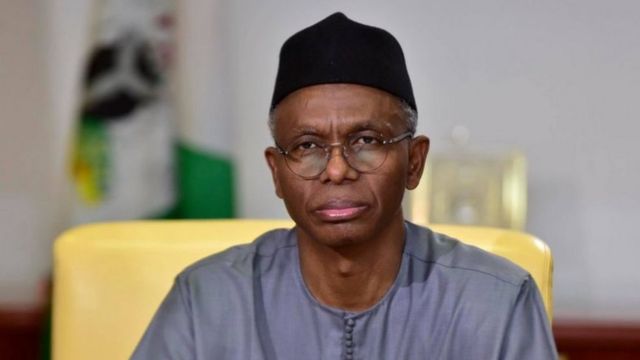
Is Nasir El-Rufai on the Peril? By Alabidun Shuaib AbdulRahman
There is something almost Shakespearean about the current phase of Nasir Ahmad El-Rufai’s political journey. Once firmly lodged within Nigeria’s innermost corridors of power, the former governor of Kaduna State now finds himself navigating choppy waters—estranged from elements of the establishment he helped midwife, locked in public disagreements with former allies, and increasingly defined by sharp media interventions rather than executive authority. The question therefore suggests itself with urgency: is Nasir El-Rufai on the peril, politically speaking, or merely repositioning for another audacious ascent?
To answer that, one must first understand the architecture of his rise. El-Rufai has always thrived at the intersection of intellect and insurgency. From his days as Director-General of the Bureau of Public Enterprises to his tenure as Minister of the Federal Capital Territory between 2003 and 2007, he cultivated the persona of a reformer unafraid of entrenched interests. In Abuja, he enforced the capital’s master plan with relentless precision, demolishing structures deemed illegal and digitising land administration through the Abuja Geographic Information System. Admirers saw courage; critics saw cold technocracy. But none doubted his influence.
His political resurrection after years in relative exile was equally strategic. As a central figure in the coalition that birthed the All Progressives Congress in 2013, El-Rufai demonstrated both tactical patience and elite networking. The APC’s 2015 victory was not merely a partisan turnover; it was a reconfiguration of Nigeria’s power map. In securing the governorship of Kaduna State that same year, El-Rufai transitioned from federal reform czar to subnational executive with a mandate to replicate structural transformation.
Kaduna was never going to be an easy laboratory. With its near parity of Muslim and Christian populations and a history of sectarian volatility, governance required not only administrative efficiency but also delicate social navigation. El-Rufai chose the path he knew best—structural reform. He implemented a Treasury Single Account to streamline finances, overhauled the civil service, and embarked on sweeping education reforms that culminated in the disengagement of more than 20,000 primary school teachers who failed competency tests. The state borrowed heavily for infrastructure, betting that long-term growth would justify short-term fiscal strain.
To his supporters, these were acts of bold leadership in a polity allergic to tough decisions. To his critics, they revealed a governor more comfortable with spreadsheets than sentiments. Southern Kaduna’s recurrent violence further complicated his record. His insistence on framing the crisis largely as criminality rather than ethno-religious persecution was analytically defensible in some respects, yet politically combustible. Perception hardened into distrust among segments of the population who felt unseen and unheard.
Even so, he secured re-election in 2019, proof that reform and controversy can coexist in Nigeria’s electoral calculus. But it was the transition from governor to elder statesman that has proven most perilous.
El-Rufai entered the 2023 political season as a visible ally of President Bola Tinubu during the APC primaries. His intellectual heft and northern pedigree positioned him as a bridge-builder within the party’s power arithmetic. When Tinubu won the presidency, many assumed El-Rufai would feature prominently in the new administration. His nomination as a minister appeared to confirm that trajectory until the Senate declined to confirm him, reportedly citing security concerns.
In Nigerian politics, symbolism often outweighs substance. The rejection was more than procedural; it signalled a rupture. For a politician accustomed to shaping events rather than reacting to them, the development marked a subtle but unmistakable shift from insider to outsider. Since then, his public commentary has grown more pointed. He has questioned the direction of the ruling party, hinted at betrayals, and portrayed himself as a custodian of principles sidelined by expediency.
Is this evidence of peril or repositioning?
There are at least three dimensions to consider. The first is institutional. El-Rufai no longer controls a state apparatus. Without the leverage of executive office, influence must be exerted through persuasion, coalition-building and narrative framing. This transition is difficult for leaders whose authority was reinforced by command structures. His recent media engagements which implies candid, combative and occasionally accusatory suggest a man recalibrating his tools.
The second dimension is relational. Politics is sustained by networks, and networks are sustained by trust. Reports of mistrusts between El-Rufai and key federal figures, as well as friction with his successor in Kaduna, complicate his positioning. In Kaduna, reviews of past contracts and policies have cast shadows backward, feeding narratives of vendetta on both sides. At the federal level, silence has often met his critiques, a strategy that can either isolate a critic or amplify him, depending on public mood.
The third dimension is strategic. Nigeria’s political elite operates in long cycles. Conversations about 2027 are already underway in quiet rooms. El-Rufai’s national profile, intellectual agility and northern base make him a potential factor in any future coalition calculus. His current dissent may therefore be less about grievance and more about differentiation—an effort to craft an identity distinct from a government facing economic and security headwinds.
Yet peril remains a real possibility. Nigeria’s political memory can be unforgiving. Leaders who overplay their hand risk alienation from both establishment and grassroots. If El-Rufai’s critiques are perceived as personal vendetta rather than principled dissent, his moral capital may erode. Moreover, the electorate has grown increasingly wary of elite quarrels that appear disconnected from everyday hardship. A politician who once sold reform as necessity must now demonstrate empathy as convincingly as efficiency.
Still, history suggests that El-Rufai has often converted adversity into opportunity. After leaving the Obasanjo administration under clouds of controversy, he returned stronger within a new coalition. After early resistance in Kaduna, he consolidated his authority and reshaped the state’s administrative culture. His career has been punctuated by phases of apparent crisis followed by strategic resurgence.
The deeper question may not be whether he is on the peril, but whether Nigeria’s political environment can accommodate his style of engagement. El-Rufai thrives on intellectual contestation and structural overhaul. He is less adept at the slow, conciliatory art of consensus politics. In a federation where legitimacy often rests on accommodation as much as achievement, this imbalance can be costly.
There is also the matter of narrative control. El-Rufai has long been his own chief spokesman, deploying social media and interviews with precision. In the absence of political office as he is currently, narrative becomes power. His recent outbursts once again keep him in the national conversation. Silence would have signified retreat.
So, is Nasir El-Rufai on the peril? The answer is layered. Institutionally, yes—he stands as an outsider in the power structure he once influenced. Relationally, yes—alliances appear strained and rivalries sharpened. Strategically, however, peril can be prelude. In politics, moments of vulnerability often precede recalibration and El-Rufai has always been a master of that.
Ultimately, El-Rufai’s future will hinge on whether he can transform dissent into constructive coalition-building. If he remains defined by grievance, the peril may deepen into isolation. If he channels critique into a broader vision that resonates beyond elite circles, the current turbulence could become a staging ground.
For now, he occupies an ambiguous space: not dethroned, not enthroned; neither silenced nor fully embraced. In that ambiguity lies both danger and possibility. Nasir El-Rufai has built a career on defying expectations. Whether this chapter marks decline or reinvention will depend less on his adversaries than on his capacity to balance conviction with conciliation.
The peril, if it exists, is not merely political. It is existential—the risk that a man defined by reform and combat may struggle in an era demanding reconciliation and breadth. But in Nigeria’s ever-shifting theatre of power, yesterday’s peril can become tomorrow’s platform.
Alabidun is a media practitioner and can be reached via alabidungoldenson@gmail.com
Analysis
Nigeria – US Defence Cooperation: A Reflection from the Diaspora, by Boniface Ihiasota
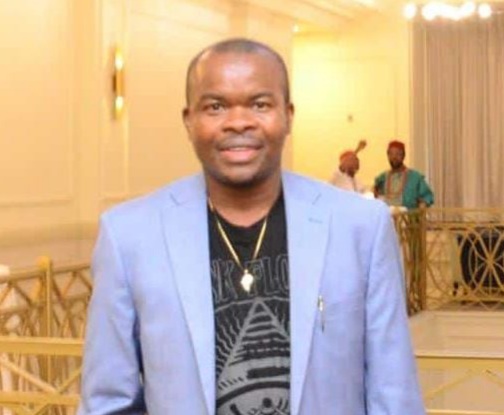
Nigeria – US Defence Cooperation: A Reflection from the Diaspora, by Boniface Ihiasota
The defence relationship between Nigeria and the United States represents one of the most complex and consequential aspects of Nigeria’s foreign policy in the 21st century. Rooted in decades of military engagement, training, strategic dialogue, intelligence sharing, and equipment acquisition, this partnership reflects shared interests in regional stability, combating violent extremism, and strengthening military institutions. For many in the Nigerian diaspora, this cooperation carries both hopes for enhanced security at home and concerns about sovereignty, national strategy, and the implications of external influence.
At its core, Nigeria-US defence cooperation has evolved from traditional military diplomacy to a more multi-faceted, operational collaboration. Since the early 2000s, the United States has provided sustained security sector assistance to Nigeria. According to U.S. government data, more than $232 million in security support was delivered between 2000 and 2021, with notifications of $593 million in Foreign Military Sales and approximately $305 million in direct commercial defence sales to support counter-terrorism, border security, and professionalization of the Nigerian Armed Forces. In 2022 the U.S. announced nearly $997 million in a major foreign military sale that included attack helicopters and associated training as part of long-term capability enhancement.
In practical terms, the partnership nurtures capacity building, professional military education, and logistics cooperation. Both nations have exchanged senior military leaders and engaged in joint strategic dialogues to align responses to shared threats. Nigerian defence officials and U.S. counterparts have regularly convened to strengthen frameworks for cooperation, reaffirming commitments to respect Nigeria’s sovereignty while leveraging U.S. technical expertise.
As insecurity in Nigeria has worsened, especially with the prolonged insurgency of Boko Haram and the Islamic State West Africa Province (ISWAP) as well as rising banditry and extremist violence, the practical aspects of the partnership have taken on heightened urgency. Recent developments illustrate this vividly. In early 2026, Nigeria formally invited additional U.S. military support for training, intelligence sharing, and technical assistance. Nigeria’s Defence Headquarters on Monday confirmed the arrival of about 100 U.S. military personnel and equipment at Bauchi, with planned joint training exercises aimed at enhancing Nigerian troops’ capacity to detect and neutralize extremist groups. Local authorities clarified that the U.S. personnel serve in advisory and training roles, under Nigerian command, in line with bilateral agreements and respect for Nigerian sovereignty.
In neighboring Abuja and among diaspora communities, these movements sparked broad discussions about what external military involvement means for Nigeria’s autonomy and long-term security strategy. Advocacy groups like Citizens for Strategic Defence Cooperation have publicly endorsed the expanded partnership while stressing that it does not erode Nigeria’s sovereignty. They describe the engagement as “measured and strategic,” focused on capacity building, intelligence systems, and joint problem-solving rather than occupation or direct combat.
Beyond boots on the ground, the United States has engaged Nigeria in targeted counter-terrorism operations. In late 2025, the U.S. carried out airstrikes against Islamic State-linked camps in northwest Nigeria with Nigerian approval, employing precision guided munitions through U.S. Africa Command (AFRICOM) platforms. These strikes were designed to disrupt militant networks operating from Sahel corridors and were followed by coordinated intelligence sharing.
Still, the defence cooperation is not without controversy. In the diaspora, commentary reflects a spectrum of views: from optimism about the gains in confronting violent extremism to unease about foreign intervention and the framing of Nigeria’s internal conflicts in international discourse. Former U.S. statements by political leaders, including those linking Nigeria’s actions to religious persecution or threatening aid cuts, have sometimes strained diplomatic goodwill, prompting the Nigerian government to clarify its position and reject broad characterizations of the security situation.
Nonetheless, there are tangible operational outcomes that diaspora stakeholders often highlight as evidence of positive cooperation. Enhanced intelligence sharing has contributed to improved situational awareness for Nigerian forces during operations like Operation Hadin Kai in the North East and Operation Fasan Yamma in the northwest. The timely delivery of military hardware — including drones, helicopters, spare parts, and support systems — pledged by the U.S. demonstrates a sustained material investment in Nigeria’s defence architecture.
For many Nigerians abroad, this partnership epitomizes the balancing act between external support and internal agency. On one hand, there is recognition that no nation is an island in confronting transnational threats. On the other, there is a persistent call for transparency, accountability, and strategies that prioritize civilian protection and national ownership of security frameworks.
In conclusion, Nigeria–U.S. defence cooperation is a nuanced, evolving relationship rooted in shared interests and longstanding military engagement. While it brings considerable resources, training, and strategic depth to Nigeria’s fight against violent extremism, it also requires careful navigation of national interests, sovereignty considerations, and public perceptions — both at home and within the vibrant Nigerian diaspora. Ensuring that this cooperation yields tangible security improvements without undermining national autonomy remains a shared challenge for both nations.
Analysis
Nigeria’s Tax Reforms and the Diaspora, by Boniface Ihiasota

Nigeria’s Tax Reforms and the Diaspora, by Boniface Ihiasota
For Nigerians living abroad, tax policy at home has often felt distant, until the recent overhaul of Nigeria’s tax framework brought it sharply into focus. The passage of the Nigeria Tax Act, which took effect from January 1, 2026, triggered anxiety across diaspora communities, fuelled largely by fears that earnings abroad or personal remittances would now attract Nigerian tax. A closer reading of the reforms, however, shows that Nigeria is not charting a radical or punitive course against its diaspora. Instead, it is aligning more closely with internationally accepted principles of taxation based on residency and income source.
At the heart of the reform is a clearer definition of tax residency. Under the new framework, individuals who spend 183 days or more within Nigeria over a 12-month period, or who maintain a permanent home or substantial economic ties in the country, are considered tax residents. Only such residents are liable to tax on their worldwide income. Nigerians who live and work abroad and do not meet these conditions remain non-residents and are taxable in Nigeria only on income sourced within the country. This distinction is critical because it dispels the widespread notion that citizenship alone now triggers tax liability.
The Federal Government, through the Presidential Fiscal Policy and Tax Reforms Committee, has repeatedly clarified that income earned abroad by non-resident Nigerians is not subject to Nigerian tax, even when such income is remitted home. Remittances sent to family members for upkeep, education, healthcare or personal support are not classified as taxable income. This position is particularly significant given that Nigeria received an estimated $20.5 billion in diaspora remittances in 2023, according to World Bank data, making it one of Africa’s largest recipients. Taxing such flows would not only have been impractical but economically counterproductive.
When viewed in a global context, Nigeria’s approach is far from unusual. Most countries operate either a residence-based or source-based tax system. In the United Kingdom, for instance, non-residents are taxed only on UK-sourced income, such as rental income from property located in Britain. Canada applies similar rules, taxing non-residents only on income earned within Canada, while residents are taxed on worldwide income. China also follows a residency threshold of 183 days, beyond which global income becomes taxable. Nigeria’s reforms fit squarely within this international pattern.
Only a handful of countries take a different approach. The United States is the most prominent example, taxing citizens on their worldwide income regardless of where they live. U.S. citizens abroad are required to file annual tax returns and comply with foreign account reporting rules, though credits and exclusions exist to mitigate double taxation. Eritrea operates a similar system, levying a two per cent diaspora tax on its citizens overseas. Nigeria has explicitly rejected this model, opting instead for a system that balances revenue generation with global mobility and fairness.
Where tax obligations do arise for Nigerians in the diaspora is in relation to Nigerian-sourced income. Rental income from property in Abuja or Lagos, dividends from Nigerian companies, or profits from businesses operating within Nigeria remain taxable, regardless of where the individual resides. In many cases, such taxes are collected through withholding mechanisms and treated as final, reducing administrative burdens on non-residents. This is consistent with global practice and reflects the principle that income should be taxed where economic value is created.
The reforms also strengthen Nigeria’s use of Double Taxation Agreements, which the country has signed with several nations including the United Kingdom, Canada, China and South Africa. These treaties are designed to prevent the same income from being taxed twice and to provide clarity on taxing rights between countries. For Nigerians abroad who may still qualify as tax residents due to time spent at home or strong economic ties, these agreements offer essential safeguards.
Beyond individual taxation, the reforms signal a broader shift in Nigeria’s fiscal strategy. By simplifying tax laws, adjusting personal income tax thresholds and expanding digital compliance systems, the government aims to widen the tax net without placing undue pressure on vulnerable groups or discouraging diaspora engagement. For Nigerians abroad, this clarity matters. Many invest in property, startups and family enterprises back home, and uncertainty around taxation has long been a deterrent.
Ultimately, the significance of Nigeria’s tax reforms for the diaspora lies not in new burdens, but in clearer rules. They reaffirm that Nigerians abroad are not taxed simply for being Nigerian, nor for supporting families at home. Instead, tax obligations are tied to presence, economic activity and income source, in line with global norms. For a country whose diaspora plays a vital role in economic stability and development, this alignment is not just sensible policy, but a necessary reassurance.
-
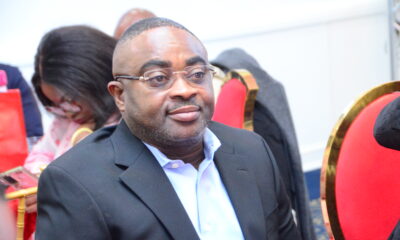
 Extra6 days ago
Extra6 days agoUS Veteran, Walter Obi Urges Compassionate Leadership at Valentine’s Event in US
-

 Diaspora5 days ago
Diaspora5 days agoZenith Bank to Host Diaspora Engagement, Banking Services for Nigerians in Texas
-
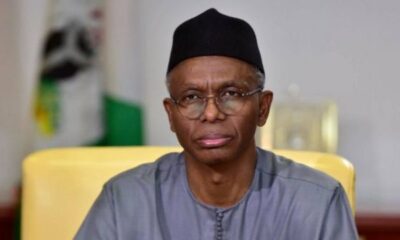
 Analysis6 days ago
Analysis6 days agoIs Nasir El-Rufai on the Peril? By Alabidun Shuaib AbdulRahman
-

 News6 days ago
News6 days agoNigerian Govt Raises Alarm Over Illegal Recruitment of Its Citizens into Foreign Wars
-

 Business6 days ago
Business6 days agoA Home Worth Coming Back To: The Signature Residence by Mshel Homes
-
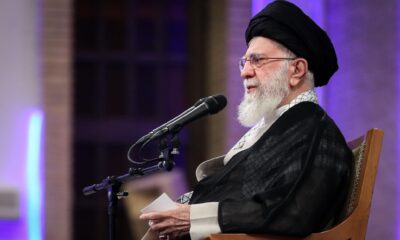
 News6 days ago
News6 days agoIran Claims Breakthrough on ‘Guiding Principles’ in Nuclear Talks with US










